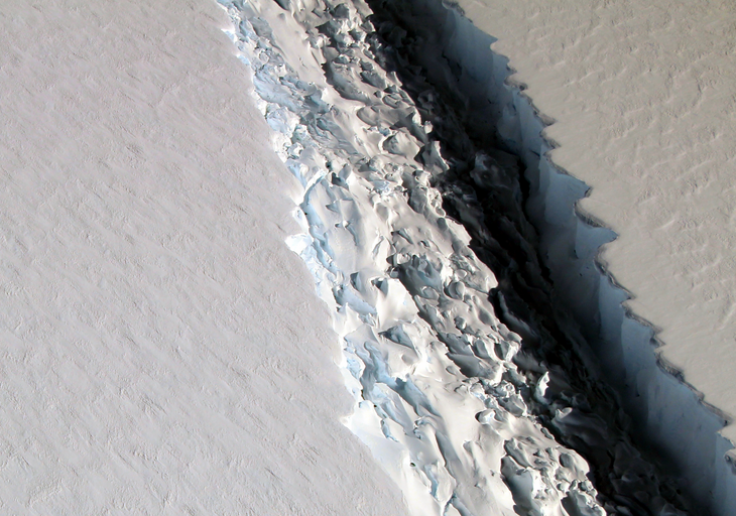Chunk Of Ice The Size Of Delaware Will Break Off Antarctica Ice Shelf

One of the biggest icebergs ever recorded is about to break away from Antarctica, scientists at Swansea University in Wales said Friday.
The enormous piece of ice, almost the size of the state of Delaware, will soon break off of the Larsen C ice shelf after a rift rapidly grew in December. Only 12 miles of ice (20km) is keeping the nearly 2,000-square-mile (5,000 sq km) chunk of ice from floating away, scientists say.
Larsen C, located at the edge of West Antarctica, is about 350 meters thick (more than 1,100 feet) and holds back the flow of glaciers that feed into it. The break off of the large piece of ice leaves the whole shelf at risk to future break-ups, researchers say.

Last August, scientists from UK’s Project Midas announced that the Larsen C rift was growing rapidly, but in December the speed of the rift went into overdrive, further expanding by about 11 miles (18km) in just a couple of weeks. Scientists have been keeping an eye on the growing rift in Larsen C for years after the collapse of the Larsen A ice shelf in 1995 and the surprising break-up of the Larsen B shelf in 2002.
"If it doesn't go in the next few months, I'll be amazed,” said project leader Prof. Adrian Luckman.
Luckman says the break-off is “inevitable” and that the area that will break away will join the list of one of the top ten biggest icebergs ever recorded.
Scientists are worried about the break-off’s impact to the its neighbor, Larsen B.
"We are convinced, although others are not, that the remaining ice shelf will be less stable than the present one," said Professor Luckman.
The iceberg that breaks off will not raise sea levels. However, if the shelf continues to break up, the glaciers that flow off the land behind it could speed up its passage towards the ocean, which could have an effect on sea levels.
If alls that happens, global waters would rise by 10 cm, scientists say.
© Copyright IBTimes 2024. All rights reserved.











